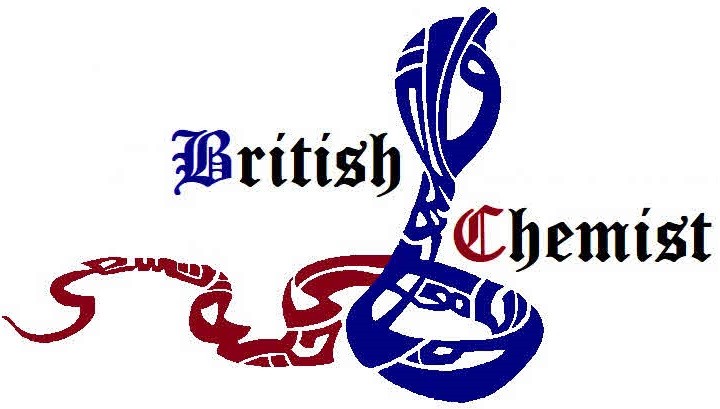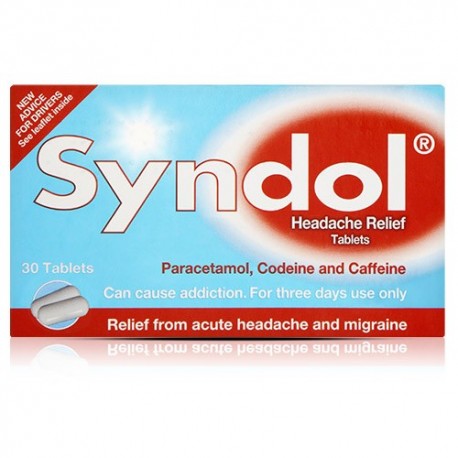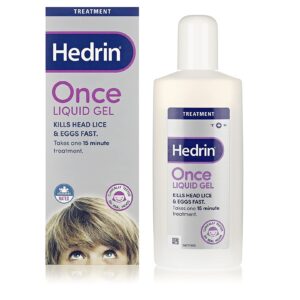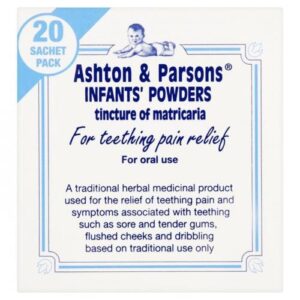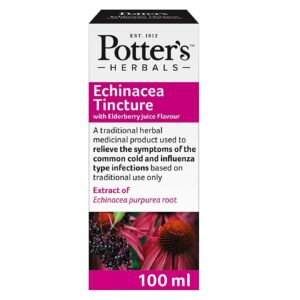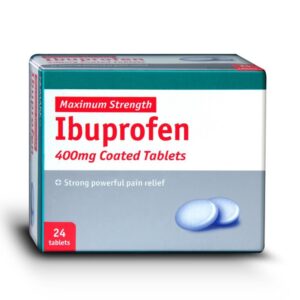Description
Syndol Headache Relief Tablets are used for the treatment of mild to moderate pain and as an antipyretic. Syndol Headache Relief Tablets are recommended for the symptomatic relief of headache, including muscle contraction or tension headache, migraine, neuralgia, toothache, sore throat, dysmenorrhoea, muscular and rheumatic aches and pains and for post-operative analgesia following surgical or dental procedures. Syndol contains strong painkilling ingredients to lessen the symptoms of the common cold.
The Three active ingredients include:
Codeine:
A strong painkiller known as an opioid. Codeine works by mimicking actions of pain-reducing chemicals called endorphins found in the brain and spinal cord blocking the transmission of pain signals.
Paracetamol:
A painkilling medicine though to work by reducing the production of prostaglandins in the brain and spinal cord therefore reducing pain.
Caffeine:
A weak stimulant claimed to enhance the effects of paracetamol and codeine.
For the short term treatment of acute moderate pain, which is not relieved by paracetamol, ibuprofen or aspirin alone.
• You should only take this product for a maximum of three days at a time. If you need to take it for longer than three days you should see your doctor or pharmacist for advice.
• This medicine contains codeine which can cause addiction if you take it continuously for more than three days. This can give you withdrawal symptoms from the medicine when you stop taking it.
• If you take this medicine for headaches for more than three days it can make them worse.
Uses / Instructions
Swallow the tablets whole with water.
Do not chew.
Adults
- Take 2 tablets every 4-6 hours as required.
- Do not take more than 8 tablets in 24 hours.
Children aged 16-18 years
- Take 1-2 tablets every 6 hours as required.
- Do not take more than 8 tablets in 24 hours.
Children aged 12-15 years
- Take 1 tablet every 6 hours, as required.
- Do not take more than 4 tablets in 24 hours.
- Do not take more frequently than every 6 hours.
Do not give to children under 12 years.
Do not take more medicine than the label tells you to. If you do not get better, talk to your doctor.
Do not use for more than 3 days. If you need to use this medicine for more than three days you must speak to your doctor or pharmacist. Codeine addiction
This medicine contains codeine and can cause addiction if you take it continuously for more than three days.
When you stop taking it you may get withdrawal symptoms.
You should talk to your doctor or pharmacist if you think you are suffering from withdrawal symptoms.
Talk to a doctor at once if you take too much of this medicine even if you feel well.
This is because too much paracetamol can cause delayed, serious liver damage. Go to your nearest hospital casualty department.
Warnings
- This medicine contains codeine which can cause addiction if you take it continuously for more than three days.
- This can give you withdrawal symptoms from the medicine when you stop taking it.
- If you take a painkiller for headaches for more than three days it can make them worse.
Do not take this medicine if you:
- are allergic to paracetamol, codeine, caffeine or any of the other ingredients of this medicine
- have acute asthma
- have severe respiratory disease
- suffer from alcoholism
- have had recent bile duct surgery (e.g. gall stones)
- suffer from paralytic ileus, where your bowel has ceased to function
- have recently had a head injury or raised pressure in the skull
- are breastfeeding
- have been told by your doctor that you are a CYP2D6 ultra metaboliser
- are under 18 years and have had your tonsils or adenoids removed.
Warnings and precautions
Talk to your doctor or pharmacist if you:
- suffer from kidney or liver problems, including alcoholic liver disease
- have an enlarged prostate gland
- suffer from low blood pressure
- suffer from inflammatory or obstructive bowel disorders such as constipation, diarrhoea or bloating
- suffer from an underactive thyroid gland
- are elderly or debilitated.
Other medicines and Syndol®
Tell your doctor or pharmacist if you are taking, have recently taken or might take any other medicines, like
- medicines to treat high cholesterol levels which reduce the amount of fat in the blood such as colestyramine
- medicines to control feeling sick or being sick such as metoclopramide or domperidone
- medicines called anti-coagulants, which are used to thin the blood such as warfarin, Aspirin or other coumarins – you may take occasional doses of paracetamol but should consult your doctor if you need to take it on a regular basis
- cimetidine, a medicine to treat heartburn or peptic ulcers
- tricyclic antidepressants, which are medicines used to treat depression e.g. amitriptyline and imipramine
- antipsychotic medicines used to treat mental illness e.g. chlorpromazine and risperidone
- quinidine or mexiletine, used to treat heart problems
- antidepressant drugs called monoamine oxidase inhibitors (MAOI’s) – these are medicines such as phenelzine and moclobemide
- the antibiotic chloramphenicol
- other CNS depressant drugs such as sodium oxybate
- barbiturates and benzodiazepines which are medicines to calm you down or to help you sleep (e.g. mephobarbital, pentobarbital, diazepam and alprazolam).
- medicines for diarrhoea and tummy cramps as taking these at the same time as Syndol Headache Relief Tablets may make you constipated medicines such as atropine, procyclidene, or hyoscine which are used to treat problems with gut movement. Taking these at the same time as Syndol Headache Relief Tablets may make you severely constipated and may make it difficult for you to pass urine.
- some antihistamines which may be used in cough/cold remedies and anti-allergy products. Taking these at the same time as paracetamol, caffeine and codeine tablets may make you severely constipated and may make it difficult for you to pass urine.
- naltrexone – used in the treatment of drug dependence. Do not take anything else containing paracetamol while taking this medicine. Taking this medicine with food, drink and alcohol Do not drink alcohol (beer, wine, spirits etc) while taking this product.
Pregnancy and breastfeeding
Do not take this medicine if you are breastfeeding. If you are pregnant or breastfeeding, think you may be pregnant or are planning to have a baby, ask your doctor or pharmacist for advice before taking this medicine.
Driving and using machines
These tablets might cause drowsiness. If you are affected, do not drive or operate machinery.
The medicine can affect your ability to drive as it may make you sleepy or dizzy.
- Do not drive while taking this medicine until you know how it affects you
- It may be an offence to drive when taking this medicine
- However, you would not be committing an offence if:
The medicine has been taken to treat a medical or dental problem and You have taken it according to the information provided with the medicine and
It was not affecting your ability to drive safely Talk to your doctor or pharmacist if you are not sure whether it is safe for you to drive while taking this medicine.
Details regarding a new driving offence concerning driving after drugs have been taken in the UK may be found here: https://www.gov.uk/drug-driving-law
Side Effects
Some people may have side-effects when taking this medicine.
If you have any unwanted side effects you should seek advice from your doctor, pharmacist or other healthcare professional.
STOP TAKING the tablets and contact your doctor immediately if you develop any of the following serious side effects at any time while taking your medicine:
Allergic reactions: The following symptoms may mean you are having an allergic reaction to this medicine:
- rash, itching, swollen red areas of the skin or swelling of the face
- very rare cases of serious skin reactions have been reported Blood disorders which can cause: unexplained or unusual bruising or bleeding
- fever and infections.
- Heart and circulation effects which can cause:
- an unusually low heart rate
- low blood pressure
- hypothermia Nervous system problems which can cause: hallucinations.
Other serious side effects which can cause:
- restricted breathing
- abdominal or back pain.
Less serious side effects, that may occur include those listed below:
Stomach and intestine effects including:
- constipation, stomach cramps, feeling sick and vomiting.
Other nervous system problems which can cause:
- dizziness, light headedness, 2 3 disorientation and drowsiness headache, tremor, nervousness, confusion, irritability, restlessness, anxiety and mood changes
- vertigo.
- Heart and circulation effects which can cause: an increased awareness of your heart beat, a head rush or dizzy spells, an increase in your heart rate or sweating.
Other less serious side effects which can cause:
- difficulty in passing water, needing to pass urine more often, or passing less urine than usual
- decreased libido or potency
- muscle rigidity
- a dry mouth
- your eye’s pupil may become smaller
- blurred or double vision
- nightmares.
Ingredients
Each film-coated white capsule-shaped tablet, debossed on one side with ‘PCC’, contains the below:
Active ingredients:
paracetamol 500 mg, caffeine 30 mg and codeine phosphate 8 mg.
They also contain:
povidone, maize starch, methylcellulose, talc, purified water, calcium stearate, methylhydroxypropylcellulose and polyethylene glycol.
Vendor Information
-
Store Name:
Urvi Bambhania
-
Vendor:
Urvi Bambhania
-
Address:
511 Kingsbury Rd
London
London
NW9 9EG
-
No ratings found yet!
